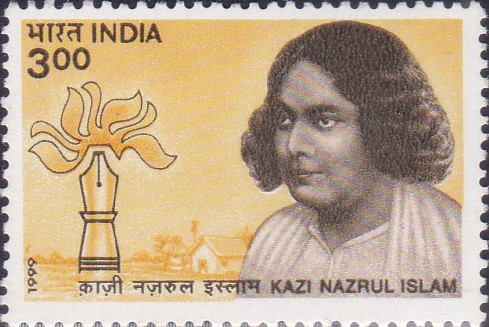
India on Kazi Nazrul Islam
A commemorative postage stamp on Kazi Najrul Islam, a Bengali poet and national poet of Bangladesh [a part of the series ‘Linguistic Harmony of India‘] :

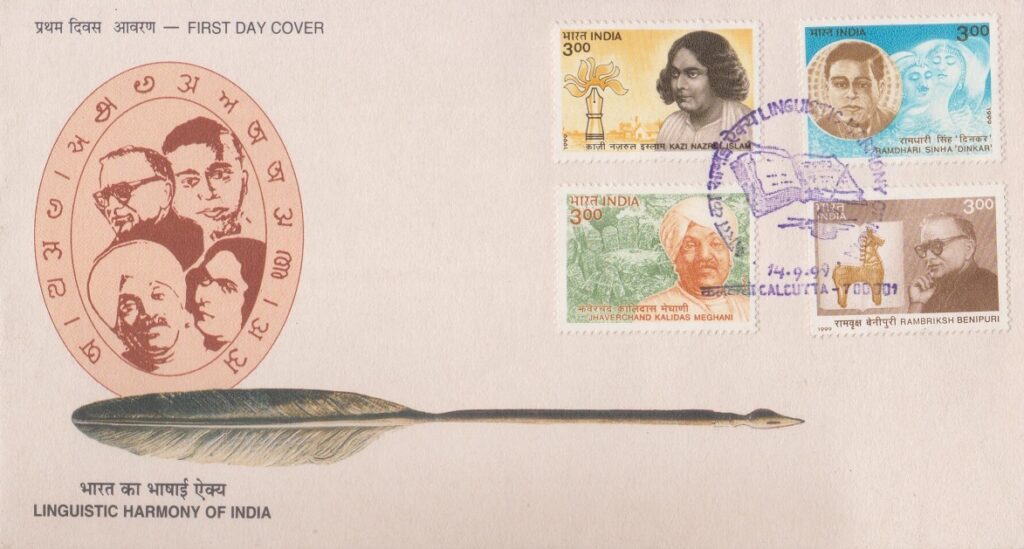 Issued by India
Issued by India
Issued on Sep 14, 1999
Issued for : Arising as it does from different regions and languages, the diversity of the ancient literary tradition of India is at once striking. These languages and literatures have been interacting with one another through the centuries resulting in their getting influenced by one another and acquiring a common, unmistakable identity that is typically Indian. The Department of Posts issues a set of four stamps on distinguished literary figures, whose works when viewed in totality, emphasise the linguistic harmony of the country.
The set of four stamps was released on 14th September, 1999, the 50th Anniversary of ‘Hindi Diwas’, which marks the adoption of Hindi as the Official Language of the Union. The day also celebrated all regional Indian languages and was symbolic of the linguistic harmony of the country.
Stamp Design : Concept of linguistic harmony in India is sought to be portrayed. The issue celebrates four distinguished literary figures of modern India: Kazi Nazrul Islam, Ramdhari Sinha ‘Dinkar’, Jhaverchand Kalidas Meghani and Rambriksh Benipuri. The stamp designs attempt symbolic recreation of their literary works.
Credits :
Stamp : Designs furnished by sponsors.
Cancellation : Alka Sharma
Type : Stamp, Mint Condition
Colour : Two Colour
Denomination : 300 Paise
Overall size : 3.91 x 2.90 cms.
Printing size : 3.55 x 2.54 cms.
Perforation : 13 x 13
Paper : Imported unwatermarked Adhesive Gravure Coated Stamp Paper in Sheets 50.8 x 53.5 cms.
Stamps Printed : 0.4 Million
Number per issue sheet : 35
Printing Process : Photogravure
Printer : India Security Press, Nashik
Name : Nazrul Islam
Born on May 25, 1899 at Churulia, Bengal Presidency, British India
Died on Aug 29, 1976 at Dhaka, Bangladesh
About :
- Kazi Nazrul Islam (1899-1976), the Revolutionary Poet of Bengal, hailed from humble beginnings. His literary career began with contributions to periodicals and his poems were noted for their intensity of emotions. The publication of the poem “Vidrohi” (The Rebel) in 1922, established his distinctive voice in Bangla poetry. He composed nearly 3000 songs. His famous lyrics “Bisher Banshi”, “Agamoni”, “Pralay Veena”, “Dolan Champa”, “Samyawadi”, etc. inspired the people to join the movement for independence. He used to set his poems to tune, gaining considerable popularity through the Calcutta station of All India Radio. In 1942, while participating in a programme of All India Radio, he fell ill and lost his power of speech, a condition which was diagnosed as irreversible. After the formation of Bangladesh in 1972, at the request of Bangladesh Government, Nazrul was sent to Bangladesh, where he breathed his last in 1976. He was conferred number of awards, as a tribute to his outstanding works, the prominent being “Padma Bhushan”, the national award and “Ekushey Padak” from Government of Bangladesh.
- Text : Dictionary of National Biography edited by S.P. Sen.


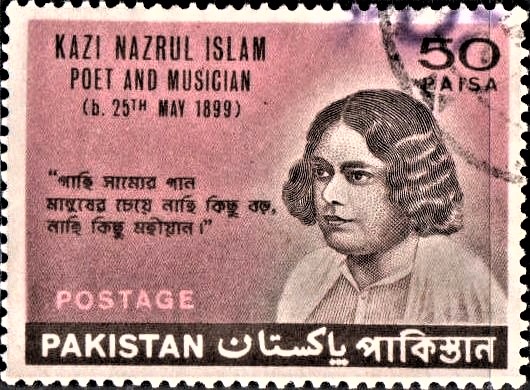
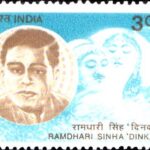
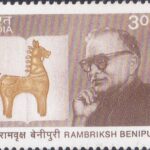
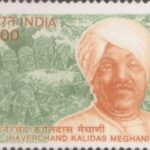
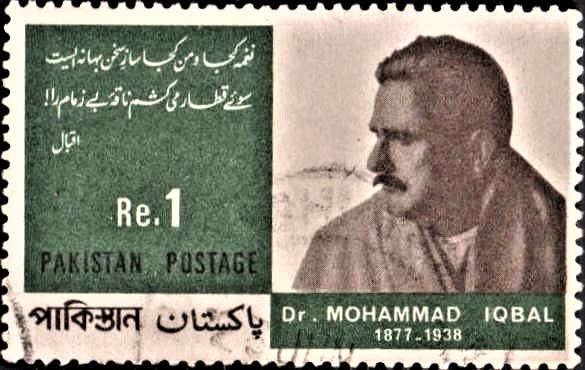
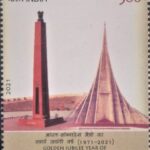
[…] sought to be portrayed. The issue celebrates four distinguished literary figures of modern India: Kazi Nazrul Islam, Ramdhari Sinha ‘Dinkar’, Jhaverchand Kalidas Meghani and Rambriksh Benipuri. The […]
[…] sought to be portrayed. The issue celebrates four distinguished literary figures of modern India: Kazi Nazrul Islam, Ramdhari Sinha ‘Dinkar’, Jhaverchand Kalidas Meghani and Rambriksh Benipuri. The […]